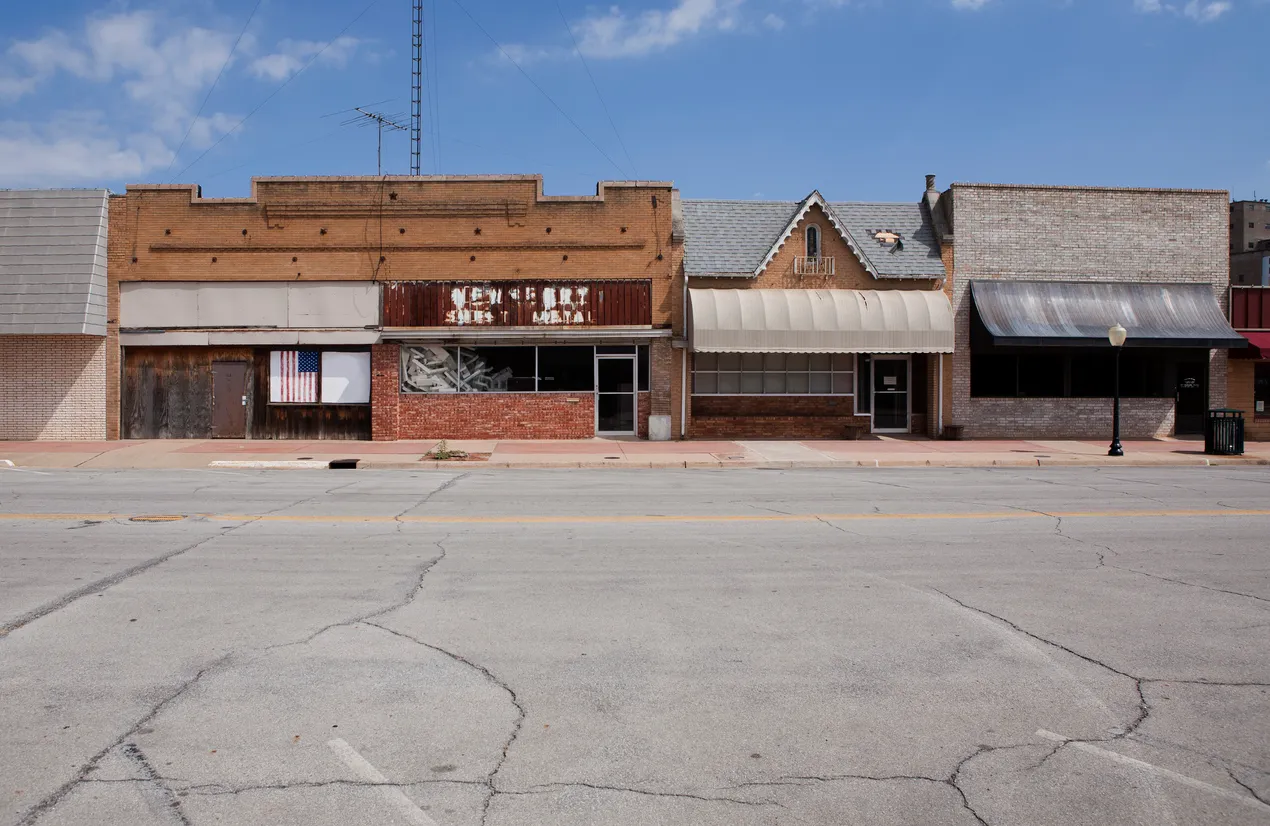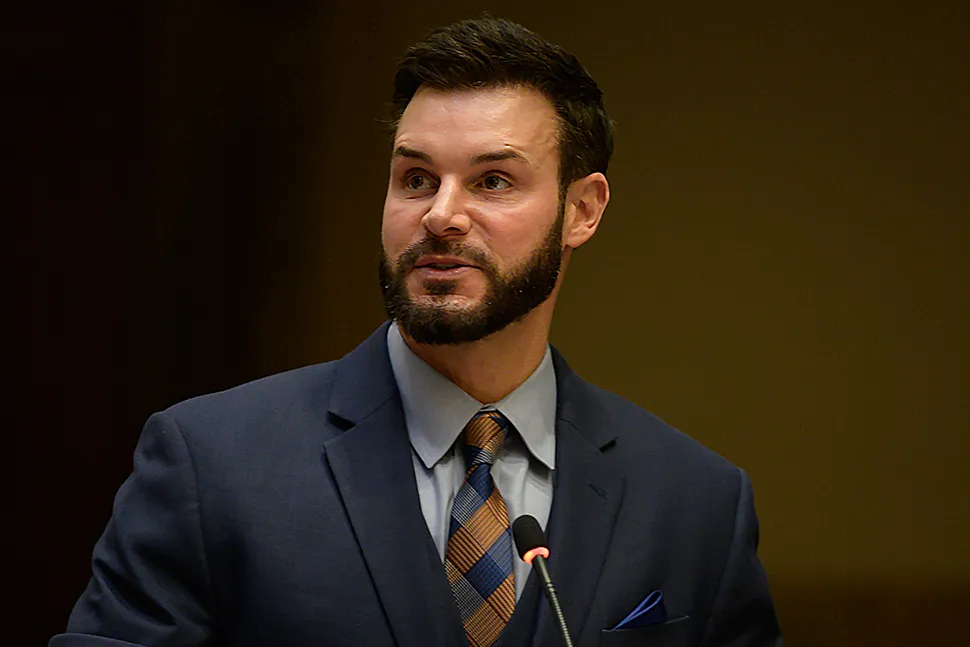Barring a seismic shift in public opinion, the Democrats are likely to get drubbed again in mostly Republican small-town and rural America come November.
Critics — including some rural progressives in Kentucky — say Democrats themselves are largely to blame. They allege that national and state party officials write off non-urban counties as unwinnable. At the same time, they claim, the party brass focuses only on turning out the reliably liberal Democratic urban vote and on appealing to moderate swing voters in the suburbs, who have been moving toward Team Blue since Donald Trump’s near total takeover of Team Red.
However, Democrats in leadership deny they neglect small town and rural voters. The Kentucky Democratic Party has a Rural Caucus whose chair sits on the State Central Executive Committee.
The state party doesn’t tilt toward any part of the state over another, said Kenny Fogle, KDP deputy political director. “We’re the same party in Louisville, Lexington, Frankfort, and rural Kentucky. Our party doesn’t tailor our message to where we are. Neither does Gov. Andy Beshear, who’s in the corner of all Kentuckians, rural and urban.”
This researcher has a different answer
Researcher and author Mike Males argues that the Democrats’ problem at the polls in rural sections of the country doesn’t stem from purported indifference or urban bias. “Anger is roiling in Republican America, along with conspiratorial fabrications about who to blame for their condition,” he wrote in Yes! online, adding, “A harbinger of this trend is [once thriving small-town] Antlers, Oklahoma, where I grew up. ... Today, Trump’s base voters are electing candidates who share their racial resentment and imagined victimization, not those who actually are advancing their safety and economic well-being.”
In other words, they’re doing themselves in, according to Males, a senior researcher for the San Francisco-based Center on Juvenile and Criminal Justice, the main investigator for YouthFacts, and the author of five books on American youth.
“Decades of political decisions and policies have created a massive and growing chasm between the economic and social disaster unfolding in small-town and rural parts of the United States, and the prosperity and safety of cities and suburbs,” Males also wrote in Yes!
“Many of those successful urban and suburban areas have reaped the rewards of electing largely moderate, competent Democratic leaders. Meanwhile, rural areas have elected Republicans drawn from a party that is increasingly incompetent, corrupt, and willing to engage in outright racism to win elections.”
Who are the real advancers? The Democrats, says Males.
“Across America, the partisan gap in gross domestic product per capita is also huge and growing: $77,900 in Democratic-voting areas, compared with $46,600 in Republican-voting areas. Antlers and Pushmataha County are hardly alone: 444 Republican counties have a GDP per capita of under $30,000, and 10 times as many people live in those counties than in the seven similarly low-GDP Democratic counties. Whites in about 40% of all Republican counties lost income over the past two decades. And Trump’s administration was no help to his base. During his presidency, the overall Democrat–Republican GDP per capita gap widened by another $1,800.
“This is not simply an urban–rural divide. For the largest urbanized states, the three with Democratic control of all branches of government (California, New York, and Illinois) had GDPs per capita vastly higher than the three biggest Republican-controlled states (Texas, Florida, and Ohio).”
He added, "Mirroring Antlers, White Republican America also suffers violent death rates, including from suicide, homicide, firearms, and drunken driving crashes, far higher than Whites in Democratic America and higher than non-White people everywhere. To top it off, Republican-governed Americans are substantially more likely to die from COVID-19. As the death gap between Republican and Democratic areas widens over time, the life expectancy for Whites in Republican-voting areas (77.6 years) is now three years shorter than that of Whites in Democratic areas (80.6 years), shorter than those of Asians and Latino people everywhere, and only a few months longer than Black and Native Americans in Democratic areas. Surveys and studies consistently find Trump’s generally older, White supporters enraged at “loss of status” and in fear of being “replaced” by non-White people. That White people are falling behind across key economic, health, and safety indexes is not due to victimization by immigrants and liberal conspiracies, however, but to victimization by other Whites and self-inflicted alcoholism, drug overdose, and suicide.”
What can we do, then?
So, Males asked, do we unify urban and rural America and boost the slumping economies and deteriorating societies of rural Red States via massive federal programs favored by Democrats?
“Aside from the problem that Republican members of congress (and two recalcitrant Democrats) have sabotaged beneficial initiatives, former President Barack Obama already tried that. From 2010 to 2016, the Obama administration’s economic recovery measures fostered millions of new jobs and thousands of dollars in real median income growth for Whites in urban and most rural areas alike, reversing the recession under Republican George W. Bush’s presidency.”
Males then noted, “The right-wing canard that hardworking White people subsidize welfare-grubbing cities is backward. Democrat-voting counties, with 60% of America’s population, generate 67% of the nation’s personal income, 70% of the nation’s GDP, 71% of federal taxes, 73% of charitable contributions, and 75% of state and local taxes.”
He doesn't deny the existence of urban poverty, but says its origins are different from rural poverty. “Despite the superficial resemblance of the crumbling neighborhoods, junk-filled lots, and widespread poverty of Antlers and conditions in a devastated city of color like Camden, New Jersey, the origins of their devastations are very different. Camden is the product of systemic racism and industrial abandonment inflicted on poor, primarily non-White residents powerless to prevent their exploitation. Antlers is the predictable endgame of White majorities — who had better options — instead empowering incompetent, corrupt demagogues (segregationist Democrats in the past; nihilist Republicans today) who flatter White claims to racial and religious privilege while awarding largesse to rapacious outsiders.”
Males concluded that poverty in cities and on Native American reservations “requires mainly the sustained political will to work with populations who welcome the effort. In stark contrast, fixing rural White poverty against the angry, anti-democratic recalcitrance of most Whites themselves requires an entirely new political thinking we have yet to imagine.”
--30--








